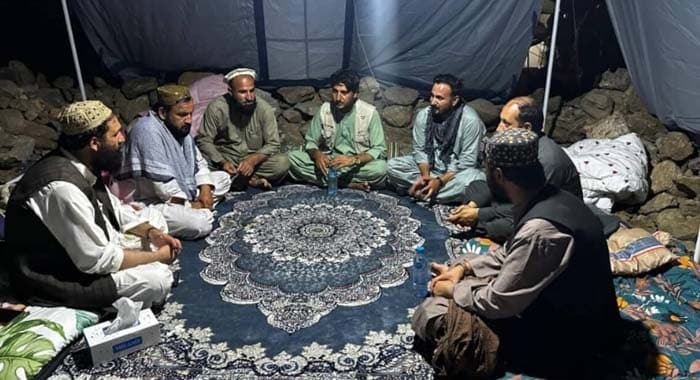The Taliban’s tightening grip on Afghanistan’s media has drawn fresh condemnation, after local journalists in Kunar province were threatened with arrest if they reported on survivors’ complaints following a recent earthquake.
According to sources, Kunar’s provincial police chief, Zia-ul-Haq Hamed, warned reporters in a closed-door meeting not to publish stories that presented what he described as a “negative” image of the authorities’ disaster response. Journalists were specifically ordered not to cover accounts from families still without food, shelter, or medical care. Hamed reportedly cautioned that violators could face imprisonment.
One reporter, speaking anonymously due to security concerns, said quake survivors have criticized local media for ignoring their plight — a silence that residents believe has slowed urgently needed aid. Despite Taliban claims that 5,000 tents have been set up in two camps, families insist that assistance has been inadequate, with thousands still living under the open sky after their homes were destroyed.
This is not an isolated case. The Taliban have increasingly sought to suppress independent reporting, especially coverage that highlights humanitarian failures.
Escalating Pressure on the Press
On July 30/31, Taliban authorities detained Abuzar Sarim Sarpolai, editor-in-chief of Tawana news agency and head of three other media outlets. He was accused of receiving foreign funds from organizations including UNAMA, UNESCO, and Iran, and of producing content critical of the regime. The Ministry for the Propagation of Virtue and Prevention of Vice claimed the funds were being used to “bring women out of their homes under the pretext of work” and to publish “negative reports” about Taliban rule.
The arrest was widely seen as part of a broader campaign to eliminate dissenting voices. Taliban-linked broadcaster DariChah echoed official claims that Sarpolai’s outlets had engaged in “moral corruption” and “spying for foreign countries” — charges rights groups describe as vague, unsubstantiated, and aimed at silencing independent journalism.
Forcing the Media to Obey
In early August, Taliban officials in Kunar, Nangarhar, Nuristan, and Laghman forced independent radio stations to dedicate their programming on August 15; the date the Taliban celebrate as their “victory day”, to pro-Taliban propaganda. Managers were ordered to invite anti-republic analysts, broadcast inflammatory language against the former government, and air Taliban-scripted content without compensation.
Stations that refused were threatened with shutdowns or programming restrictions. Journalists in the east describe a climate of fear, with Taliban officials regularly visiting newsrooms, reviewing schedules, and interfering with editorial choices.
A Pattern of Repression
The crackdown highlights the widening gap between Taliban promises and actions. When the group returned to power in 2021, it pledged tolerance toward media and respect for basic freedoms. Instead, arbitrary arrests, censorship, and intimidation have become routine. The detention of journalists, suppression of earthquake reporting, and coerced propaganda broadcasts demonstrate a regime increasingly intolerant of scrutiny.
Despite Taliban protests against UN reports documenting human rights abuses, their own actions; from banning women’s education and employment, to expelling female aid workers during disasters, and now silencing earthquake survivors, continue to validate international concerns.
For many Afghans, the hope of a more inclusive, pragmatic Taliban regime has given way to a harsh reality: a government determined to control the narrative at any cost, even if it means erasing the suffering of its own people.





